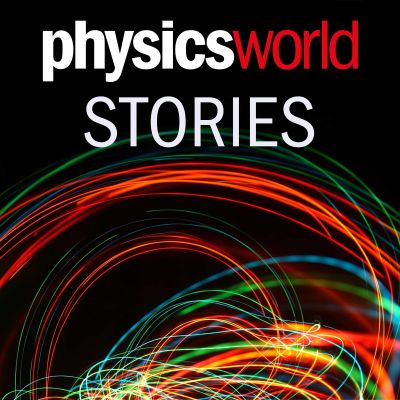Physics is full of captivating stories, from ongoing endeavours to explain the cosmos to ingenious innovations that shape the world around us. In the Physics World Stories podcast, Andrew Glester talks to the people behind some of the most intriguing and inspiring scientific stories. Listen to the podcast to hear from a diverse mix of scientists, engineers, artists and other commentators. Find out more about the stories in this podcast by visiting the Physics World website. If you enjoy what you hear, then also check out the Physics World Weekly podcast, a science-news podcast presented by our award-winning science journalists.
https://physicsworld.com/a/an-orchestral-trip-through-the-moons-of-our-solar-system/
<i>Physics World</i> 30th anniversary podcast series – particle physics
In October 1988 the first ever edition of Physics World magazine was published, so this month marks our 30th birthday. The October 2018 issue of Physics World revisits some of the key topics and issues in physics from 30 years ago, examines how they’ve developed, and contemplates their prospects for the next three decades. Particle physics, gravitational waves, optics and laser technology, fusion energy, and high-temperature superconductivity, are all reviewed.
As part of the ongoing 30th anniversary celebrations we are also producing a five-part series of podcasts to look deeper into the crystal ball, exploring the future of these key fields in more detail. The episodes form part of our monthly Physics World Stories podcast series, hosted by Bristol-based science communicator Andrew Glester.
Particle physics is where we start as Glester looks for hints of life beyond the Standard Model of particle physics. Sharing their thoughts are Valerie Gibson of the University of Cambridge and Derek Fox who has recently published intriguing research using data from the Antarctic Impulsive Transient Antenna (ANITA) experiment.
One big difference over the coming 30 years will be the growing influence of China, which has released details for a huge particle collider that will produce over a million Higgs bosons in a seven-year period. Glester explores the plans for this the China Electron Positron Collider (CEPC) facility with Yifang Wang, Director of the Institute of High Energy Physics of Chinese Academy of Sciences and researcher Yiming Li. Glester also gets the thoughts on China’s rise as a scientific powerhouse from Dutch-born astronomer Richard de Grijs who spent a decade working at the Kavli Institute for Astronomy and Astrophysics at Peking University, before recently relocating to Australia.
If you enjoy what you hear, then you can subscribe via the Apple podcast app or your chosen podcast host.
